Transparency Report

Year ended 30 June 2025


Year ended 30 June 2025
At William Buck, our culture is at the centre of who we are. We believe that how we do business is as important as what we do, and we are driven to make a genuine positive impact on the lives of our clients, people and communities.
We strive to be Australia and New Zealand’s best mid-market accounting and financial advisory firm through living our values of being collaborative, aspiring, relationship-driven and enterprising and by creating a culture that demands the highest integrity, quality, trust and professionalism.
We are proud to be a trusted assurance provider in an increasingly complex business environment. High-quality financial reporting and auditing are central to building market confidence, supporting informed investment decisions and strengthening the broader economy.
Our assurance practice continues to grow, supported by strong demand for independent, high-quality audit services. To ensure we meet this demand, we continue to invest in the right people, processes and technology. This includes alignment of methodologies and systems across the William Buck Group, deepening our industry expertise, and bringing innovative, technology-enabled solutions to the way we work.
We are also proud to be recognised as a workplace of choice, with accolades including Prosple’s #1 Graduate Employer in Accounting and Advisory, the Australian Association of Graduate Employers’ #1 Medium Program, and Xref’s Best Workplace for the third consecutive time. These awards reflect our inclusive culture, the meaningful career pathways we offer and our focus on continuous learning and development.
This year, we expanded our capabilities by appointing a Head of Sustainability Reporting, ensuring we are well-placed to guide clients through the evolving sustainability disclosure landscape. We also welcomed a Chief Economist who provides insights to help inform our understanding of macroeconomic trends and emerging financial reporting risks in an increasingly uncertain geopolitical and economic climate.
This Transparency Report, for the year ended 30 June 2025, outlines the systems, governance and quality management frameworks that underpin our audit practice. It reflects our continued focus on professional excellence, ethical leadership and the delivery of audits that meet the expectations of regulators, investors and the public. We welcome the opportunity to engage with our stakeholders on how we deliver high-quality audit services to our clients through the publication of this report.
As we look to the future with confidence, I thank our talented people and partners, whose dedication and professionalism drive everything we do. I also extend my sincere thanks to our clients for their continued trust and support.
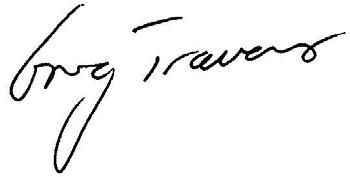
Greg Travers Chair William Buck Group

Over the past year, the audit landscape has continued to evolve rapidly, driven by regulatory reform, technological disruption and rising stakeholder expectations. In this environment, maintaining and enhancing audit quality remains our highest priority.
Our clients are navigating increasing complexity. From the phased introduction of mandatory climate-related financial disclosures in Australia to heightened economic uncertainty stemming from geopolitical instability and global trade dynamics, the pressures on businesses are significant. Technological advancements, including the rapid rise of artificial intelligence and automation, are prompting transformation across industries.
In this context, our role as auditors—to provide assurance, build trust and deliver insight—has never been more important. We recognise the need to continuously evolve, both in how we approach risk and how we deliver high-quality audits. Over the past year, we have:
Strengthened our audit methodology through collaboration between our Audit Focus Group, Audit Methodology Committee and Group Risk function.
Delivered targeted, face-to-face training for partners and senior staff, informed by root cause analysis from recent quality monitoring reviews.
Continued to reinforce our commitment to independence, objectivity and professional scepticism in every engagement.
We are also expanding our strategic focus to support clients and stakeholders across four critical areas:
Sustainability reporting: We appointed a Head of Sustainability Reporting and published tools and guidance to help clients prepare for emerging climate-related and broader ESG disclosure requirements.
Technology and innovation: Our Technology Sub-Committee continues to drive innovation in our audit practices. Working closely with our IT Focus Group, we’ve strengthened our cybersecurity protocols and invested in advanced data analytics and automation tools to enhance audit precision and efficiency.
Industry specialisation: By deepening our industry insights, we are better equipped to respond to sector-specific risks and deliver high-quality audits.
Culture and community: We continue to invest in our people and our culture that values integrity, continuous improvement and community contribution.
We are proud of the trust our clients place in us and the role we play in supporting confidence in financial reporting. As we look ahead, we remain committed to quality, integrity and innovation in everything we do.
Thank you for your continued support.

Grant Martinella Chair Audit Focus Group
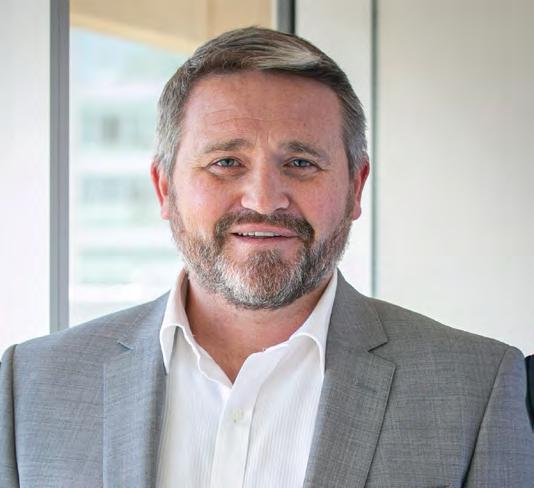

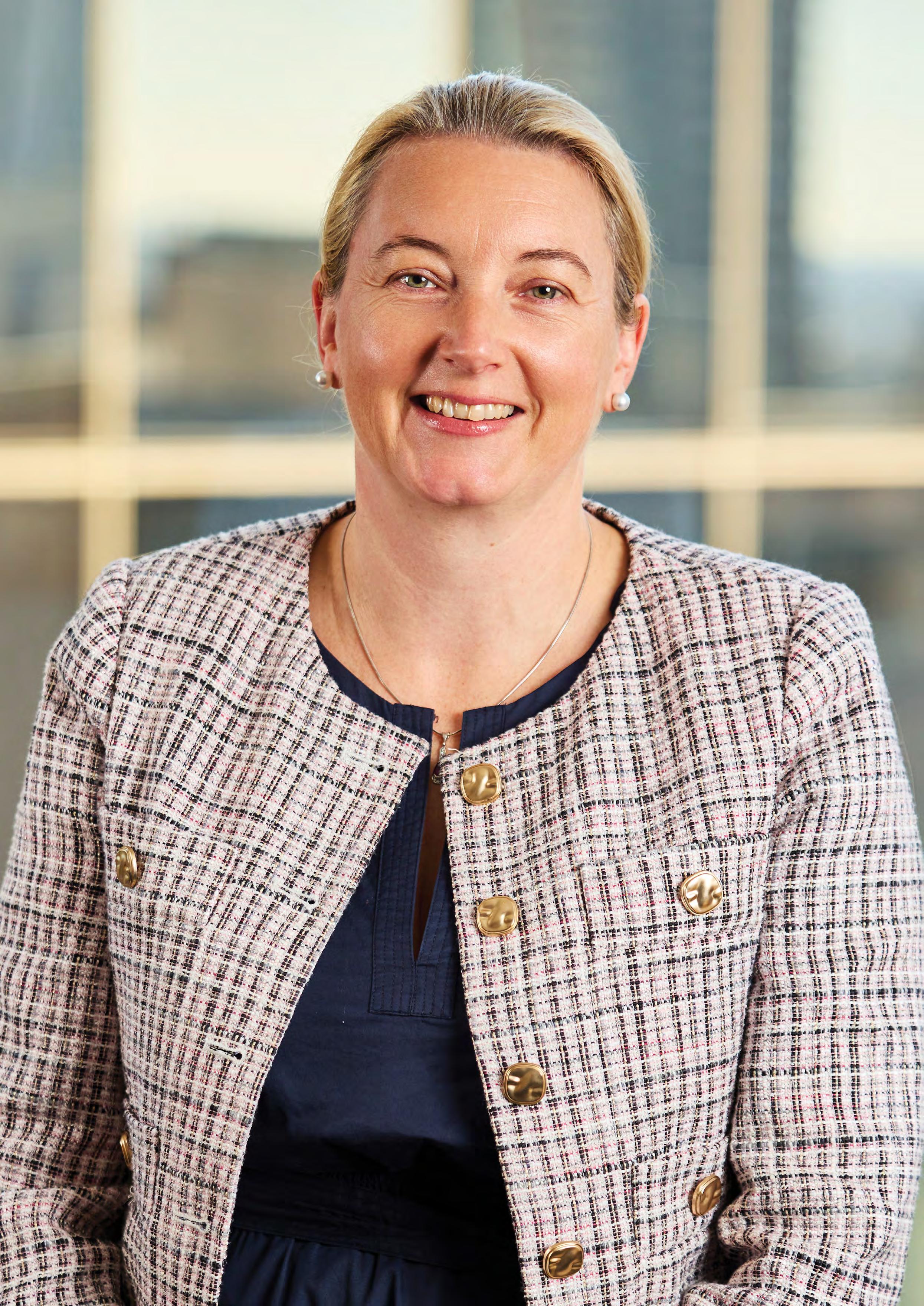
Established in 1895, William Buck has been helping people and their businesses for over 130 years.
The William Buck Group has a combined turnover of over $200 million, more than 150 partners and a 1,200+ strong team across Australia and New Zealand.
We have offices in Sydney, Parramatta, Canberra, Melbourne, Brisbane, Gold Coast, Perth, Adelaide, Auckland and Tauranga.
Although independently owned, our firms work together as a group, allowing us to seamlessly offer the same high-quality services and solutions across all locations.
Legal structure
William Buck is an association of six accounting and advisory member firms. Each member firm is owned and operated at the local level and is licensed to be a member of the Group through William Buck Limited (WBL).
WBL is the custodian of William Buck’s intellectual property and engages specific personnel to manage various elements of William Buck, including quality management, risk, technical support, learning and development and marketing. WBL is an Australian Public Company limited by guarantee and its members are the Group member firms.
A member firm of WBL cannot act as an agent of WBL or any other member firm and is only liable for its own acts or omissions and not those of WBL or any other member firm. WBL has no right or ability to control any member firm’s exercise of professional judgement.
Statutory audits are conducted at the member firm level either through a partnership or authorised audit company. Each member firm engages with clients using consistent methodology, quality management policies and procedures and the same strict standards for ethics and independence.

Through Praxity Global Alliance, William Buck clients gain access to trusted professional services across 75+ countries while maintaining the personal relationships and local market expertise that define our approach.
Praxity is an international alliance of accounting firms, bringing together like-minded professionals from across the globe. Member firms operate independently and are united by a shared commitment to high-quality client outcomes and personal care.
William Buck’s membership of Praxity Global Alliance provides our clients with seamless access to professional services across major business centres worldwide.
This extensive network enables William Buck to serve clients with international operations, cross-border transactions and multi-jurisdictional compliance requirements through trusted local partners.
Praxity has a simple, cohesive, three-tier reporting and management structure, ensuring full transparency and proportional regional representation.
Alliance benefits include:
Market access: Direct connections to established firms across North America, Europe, Asia-Pacific, Latin America, Africa and the Middle East.
Quality assurance: All member firms undergo rigorous selection processes and regular review cycles, ensuring consistent service standards while maintaining independence.
The Praxity Charter: In March 2025, all member firms signed a codified commitment to client delivery excellence, collaboration and communication standards, a first-of-its-kind global commitment.
Three-tier reporting and management structure
1.
Annually, Praxity holds at least one General Meeting (AGM), where all participant firms vote on and approve standard matters including budgets, appointments of the Governing Council, the major policies and high-level strategic direction.
2.
The Praxity Governing Council refines and focuses the Alliance’s strategic direction. Elected council seats are voted for by firms within the five regions. Governing Council members can serve two consecutive three-year terms.
3.
The decision on whether to admit new participants, plus many other duties, rests with the nine Praxity Management Board members, who direct and manage the alliance’s activities. The Management Board is elected by and from the Governing Council.
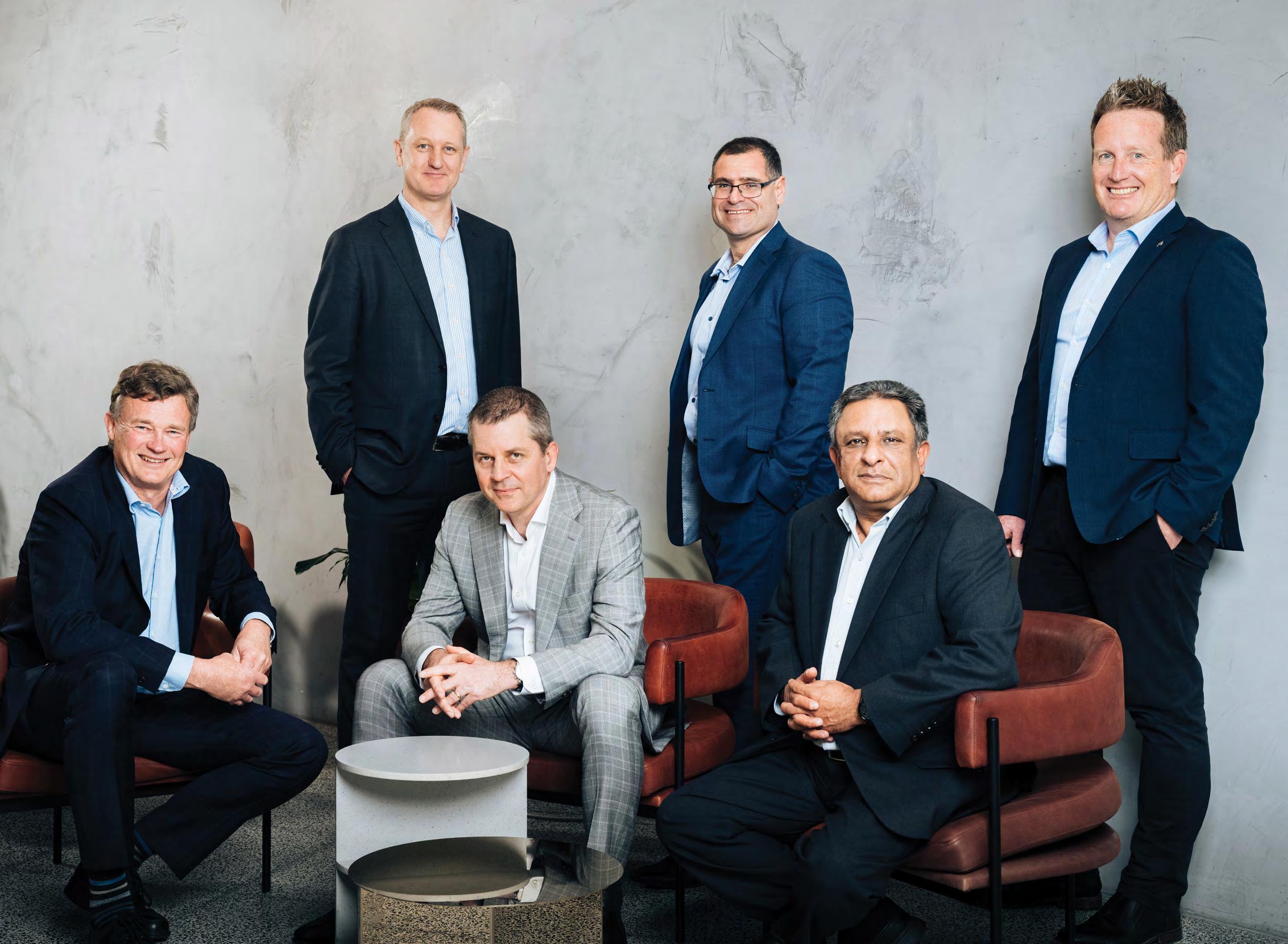
Darren
New
Adrian
Greg
New
Conley
Junaide
Victoria
William Buck has two key levels of governance that work in parallel with one another: brand governance and business governance.
The Group Board (WBL Board) is responsible for the management of the William Buck brand. The Board consists of each member firm’s Managing Partner. As at 30 June 2025, the WBL Board Members were:
Greg Travers (Chair), New South Wales and Australian Capital Territory
Adam Kirkwood-Scott, Victoria
Adrian Chugg, South Australia
Conley Manifis, Western Australia
Darren Wright, New Zealand
Junaide Latif, Queensland
The WBL Board actively supports William Buck’s success through its commitment to providing high-quality services as mid-market specialists, embracing a culture of care, collaboration and innovation to deliver exceptional results as well as to drive personal and professional growth.
The Chair is determined annually through a vote by each WBL Board member and is ratified at the Annual General Meeting.
The WBL Board oversees the following:
Risk management. The activities of this function are undertaken on behalf of the WBL Board by Group Risk.
Professional indemnity insurance management.
Learning and development. The activities of this function are undertaken on behalf of the WBL Board by Group Learning and Development.
Brand and marketing strategy. The activities of this function are undertaken on behalf of the WBL Board by Group Marketing.
Technical support. The activities of this function are undertaken on behalf of the WBL Board by Group Technical.
Group focus group activities. The goals of the focus groups are to leverage Group capability, build market presence and deliver high-quality solutions to clients.
At 30 June 2025, the following Group focus groups were operating:
Audit*, Grant Martinella Chair
Tax Services, Todd Want Chair
Business Advisory, Brett Kean Chair
Wealth Advisory, Scott Montefiore Chair
Corporate Finance, Mark Calvetti Chair
General Manager, Lynda Clark Chair
Restructuring and Insolvency, Garth O’Connor-Price Chair
IT, Primoz Trcek Chair
People and Culture, Nicole Easton Chair
Marketing, Eireann O’Brien Chair
Each member firm’s Managing Partner leads their firm’s business and marketing strategies in a manner that supports the WBL Board initiatives.
This includes:
Attraction and retention of quality partners and employees
Organic growth strategies
Acquisition strategies
Tailored client services
Industry specialisation
Development of new service offerings
Quality management
Each member firm’s Managing Partner is supported by a local Executive Board, who is responsible for the operational management of the firm. The role of the Managing Partner is to effectively execute the Group and local strategies within their own firm, which encompasses decision-making on financial and operational matters, financial objectives, financial resource management and personnel management.
Each member firm’s Managing Partner reports formally to the WBL Board on a regular basis in a comprehensive and consistent format. Reporting includes financial information, marketing and brand management activities, human resources, quality management issues and any potential professional indemnity issues.
*The Audit Focus Group membership comprises a senior audit partner from each firm. The group meets at least quarterly and drives an agenda supporting the delivery of high-quality audits. An Audit Methodology Sub-Committee leads continuous improvement in the audit methodology and tools available to practitioners, while an Audit Technology Sub-Committee focuses on technology solutions.
The two levels of governance come together as follows:
William Buck Limited (WBL)
Risk and quality management, including technical support Learning and development Focus groups Brand management and marketing strategy
WBL Board Members — Managing Partners of Member Firms
William Buck Member Firms
Service Line Focus Groups
William Buck’s organisational structure and assignment of roles, responsibilities and authority is structured appropriately to facilitate the design, implementation and operation of the firm’s quality management system.
Our clients put their trust in us and we have a responsibility to demonstrate appropriate behaviours that sustain this trust while upholding our proud reputation for quality and service excellence.
Our Code of Conduct is an extension of our shared values and culture; where our people lead with expertise and passion, serve with purpose and professionalism and share their insights and knowledge to help others.
Our Code articulates the ethical principles to which we all must hold ourselves accountable and are non-negotiable. They are centered around integrity, objectivity, professional competence and due care, confidentiality and professional behaviour.
Ethics training is embedded throughout our learning ecosystem, directly aligning with our Code of Conduct. All new hires are required to complete an ethics eLearning module when they join, and again every two years. Additionally, most of our professional partners and staff are required to complete six hours of professional ethics education per triennium as required by our professional bodies. This education reminds us of the trust that external stakeholders place in our profession and our responsibility to always do the right thing.
This systematic approach ensures that ethical decision-making and professional integrity remain front-of-mind in client interactions and internal processes.
Maintaining independence is key to compliance with the ethical principles of integrity and objectivity.
William Buck has prescriptive policies and procedures concerning independence in all assurance and non- assurance service lines, in all member firms. They are designed to identify potential conflicts of interest so that conflicts can be dealt with in line with the requirements of APES 110 Code of Ethics for Professional Accountants (including Independence Standards), International Code of Ethics for Assurance Practitioners (including International Independence Standards) (New Zealand), the Corporations Act 2001, and PES 1 International Code of Ethics for Assurance Practitioners (including International Independence Standards) (New Zealand).
We have built a culture of open consultation over many years, where partners and employees from member firms can discuss:
Independence issues (potential, actual or perceived) that arise from working with clients
Whether non-audit services are appropriate for audit clients
Whether certain business relationships are appropriate
All partners and staff complete mandatory eLearning on independence obligations to help them understand and comply with our policies and processes.
All partners and employees must follow our Independence Policy and confirm in writing each year that they comply with our policies and procedures on independence and applicable legal and regulatory requirements. New and returning employees must confirm their independence within three months of starting or rejoining William Buck.
Requirement to consult prior to acceptance of non-audit services where a conflict is identified
Relevant to audit only include:
— Independence sign-off at the planning and completion phases of the audit for all audit engagements
— s307C Independence declarations for Corporations Act 2001 engagements
— Audit partner rotation policies
Our quality management systems enable us to deliver high quality services to our clients.
Adopting an effective system of quality management is paramount to delivering quality services. William Buck has policies, procedures and processes to enable compliance with the quality management standards issued by the auditing and assurance standards boards in Australia and New Zealand.
Annually, we review our quality objectives, the risks to achieving the objectives and the policies, procedures and processes that help minimise those risks from occurring. Where appropriate, we enhance our systems. Enhancements are made throughout the year as we identify improvement opportunities; for example, from changes to requirements, liaison activity or monitoring results.
The quality management standards issued are:
ASQM 1 Quality Management for firms that perform audits or reviews of financial reports and other financial information, or other assurance or related services engagements / PES 3 Quality Management for firms that perform audits or reviews of financial statements, or other assurance or related services engagements.
ASQM 2 / PES 4 Engagement quality reviews.
ASA 220 Quality Management for an audit of a financial report or other historical financial information / ISA (NZ) 220 (Revised) Quality Management for an audit of financial statements.
The Managing Partner of each member firm is ultimately responsible and accountable for their quality management system. They understand the quality management standards and are tasked with evaluating and ensuring the system works effectively.
The Audit Leader of each member firm is responsible for designing, implementing and operating the system while also maintaining an in-depth understanding of the quality management standards. They maintain a direct line of communication with the Managing Partner, fostering seamless coordination and oversight. Operational responsibility for specific aspects of the system of quality management, such as the monitoring process, is assigned to Group Risk which reports results to the Audit Leaders, Managing Partners and WBL Board.
As outlined in our strategic plan, delivering high-quality services to our clients is our top priority. We recognise that delivering quality audit services not only strengthens our relationships but also upholds the public interest and supports the effective functioning of the financial reporting system. By prioritising quality, we safeguard William Buck’s brand and reputation while providing value to our clients.
The WBL Board plays a vital role in promoting a culture of quality across all member firms and their audit practices, as their actions and attitudes set a consistent and clear message about the importance of quality in all engagements.
The WBL Board’s commitment to quality is demonstrated through:
Leading by example: The WBL Board embodies a strong commitment to quality in their own actions and behaviours. It makes decisions that reflect its commitment to maintaining high standards in all engagements, and members serve as role models for the entire firm, as outlined in the WBL Board Charter.
Leader communication: Our leaders, including the Chair, Group Chief Operating Officer and Group Chief Risk Officer, actively communicate and reinforce the significance of quality through various communication channels.
Commitment to continuous improvement:
The WBL Board, together with Group Risk, Group Technical, Group Learning and the Audit Focus Group, champion our investment in evolving the audit methodology, tools and other resources needed to support and continuously improve audit quality.
Dedicated resources: The Group allocates dedicated risk and technical resources to allow our quality frameworks to remain current.
CARE values: The WBL Board, guided by the William Buck values of CARE—Collaborative, Aspiring, Relationship-Driven and Enterprising—demonstrates a commitment to quality. Upholding these values, the WBL Board sets the tone at the top, fostering a culture of innovation, strong relationships and collaboration, all aimed at delivering quality services and exceptional client service.
acceptance and
Client acceptance and reacceptance considerations are the first key step in delivering audit quality.
Client acceptance procedures are conducted prior to formally accepting a client and then reacceptance is performed annually prior to commencing the current year’s engagement.
We carefully assess potential clients before accepting them and regularly review our existing client relationships to manage risk. An assessment tool helps us consider key factors, determine the level of approval needed from firm leaders, and guides consultation with Group Risk, when assessing whether to accept or continue working with a client.
Key aspects of client acceptance and reacceptance risk assessment criteria
Conflicts of interest & independence assessment
Group-wide conflict checks performed to identify any potential conflicts of interest.
Any proposed non-assurance services are assessed to ensure no impairment to audit independence and if necessary, safeguards are put in place or engagements declined.
Determine whether financial interests and other relationships of the engagement team, and where relevant, the wider firm, exist.
Client risk assessment
Engagement risk assessment
Integrity of the client, including the reputation of principal owners, key management, and those charged with governance.
Nature of the client’s operations and industry characteristics.
Team member capability and availability.
Adequacy of fee to ensure a quality audit can be conducted.
Expertise of specialists when proposed to be used.
We apply a risk-based audit approach as a fundamental principle in all our engagements. This involves the engagement team developing a thorough understanding of the audited entity and its operating environment. By gaining this insight, we can identify and assess areas where potential risks may exist.
Understand the entity
Identify risks
We tailor our audit procedures to specifically respond to the risks identified, focusing the audit effort on the areas of greatest significance. By taking a risk-based approach, we optimise the allocation of our resources and enhance the quality and effectiveness of the audit process.
Assess risks
Respond to risks
The mindset of professional scepticism, coupled with sound professional judgement, is a fundamental behavioural requirement for all audit professionals.
At William Buck, we recognise the critical importance of fostering this mindset and we actively promote and reinforce it through our comprehensive approach which encompasses policies, procedures, training and ongoing evaluation of our audit personnel.
Professional scepticism involves a questioning mind as well as a critical assessment of audit evidence. Professional judgement is the informed decision-making process that applies training, knowledge and experience in the circumstances of an audit engagement.
At least one level of detailed review
By integrating professional scepticism and judgement into our practices, we enhance the quality and effectiveness of our audit engagements.
The engagement partner takes responsibility for the direction and supervision of the engagement team and for achieving high standards of quality on their engagements. They must have the appropriate competence, capability and authority to lead the engagement.
Below are our policies and procedures for supervising and reviewing all audit engagements.
A member of the engagement team that has more experience than the person who completed the work
Overriding review Engagement Partner
Consideration of:
The work has been completed appropriately in line with the audit plan and meets the requirements of the auditing standards and where relevant, professional pronouncements and legislation.
Significant matters have been raised for further consideration.
There is a need to revise the nature, timing and extent of work performed. The work performed supports the engagement output and is appropriately documented.
Consideration of, at a minimum:
The engagement was appropriately planned in accordance with legal and/or professional requirements.
Significant matters or judgements, including those relating to difficult or contentious matters.
Appropriate consultations have taken place and the resulting conclusions have been documented and implemented.
The output, including formal written communications to management, those charged with governance or regulatory authorities.
The work done and evidence obtained is sufficient and appropriate to support the engagement output.
The objectives of the engagement procedures have been achieved.
An Engagement Quality Reviewer (EQR) provides an objective evaluation of significant judgements made by an engagement team and conclusions reached in formulating the relevant report. An EQR is assigned to all Public Interest Entities. Additionally, an EQR is assigned to other high-risk audits as deemed necessary in line with the Group’s Quality Management Manual.
Key aspects considered by the EQR include:
Fulfillment of the relevant ethical requirements relating to independence.
Appropriate conclusions made by the audit team in relation to matters of significant judgment, with appropriate documentation and conclusions in the work papers.
Any communication from internal monitoring programs.
Appropriateness of the financial statements and audit report, including the description of key audit matters if applicable.
Whether appropriate consultation has taken place on difficult or contentious matters, along with the resulting conclusions.
EQRs are experienced and independent audit partners or principals, possessing the competence, capabilities, and authority to make an objective evaluation of the engagement team’s significant judgments and conclusions. These EQRs are required to be registered company auditors with sufficient time to conduct the review effectively.
William Buck fosters a collaborative consultation culture, recognising that it is a fundamental element of professional practice. All partners and employees are encouraged to consult on challenging or contentious matters, particularly those that fall outside their personal experience or set new precedents.
This collaborative process uses research, collective experiences and discussions with specialised experts. This contributes to improved decision making and the delivery of quality solutions to complex challenges.
Review conducted
Financial statements
pre-issuance
When review is required
Listed and higher public interest entities are reviewed annually if certain criteria are met; otherwise every alternate year.
Audit opinions All engagements where an emphasis of matter paragraph or modification is proposed. Public interest entity engagements where a material uncertainty related to going concern section is proposed. In addition, all long form audit reports for new clients and new or revised key audit matters.
Consultations Mandatory consultations are required in specific circumstances following the Consultation Policy. In addition, teams also consult on a professional judgement basis.
The review is conducted by
Purpose of the review
Group Technical To assess the financial statements for compliance with the Financial Reporting Framework.
Experienced Partner Panel, Group Technical
Group Technical, Corporate Finance, Tax, other experts
To consider and review the appropriateness of the proposed audit report and the wording of the modification, material uncertainty or emphasis of matter.
To support engagement teams to adopt the correct interpretation for difficult or contentious issues.
Our consultation culture
Consultation is essential for high quality audits. In addition to formal consultation requirements, our consultative culture encourages partners to regularly seek advice from other practitioners or the technical team.
Any difference of opinion between engagement team members is referred to the engagement partner.
Differences of opinion between the engagement partner, Group Technical and/or other specialists are escalated to the Audit Leader, the Chief Risk Officer or Managing Partner, depending on the circumstances. The engagement output is not issued until the difference is resolved.
Regular rotation of the engagement partner and EQR roles is also fundamental to audit quality. Fresh eyes bring a fresh perspective and this is a key ingredient to overall audit quality.
The William Buck partner and EQR rotation policy is in line with the requirements of APES 110 – Code of Ethics for Professional Accountants (including Independence Standards) and the Corporations Act 2001. A rotation register is maintained by each Audit Leader to manage rotation at the member firm level.
Internal communication
We understand the importance of effective communication in supporting audit quality and use a variety of channels to share key messages. These include Group Risk newsletters, Focus Group meetings, partner forums, firm webinars, training and technical sessions. We also hold an annual partner conference and an in-person audit partner meeting to share knowledge and build connections.
Moreover, given the size and nature of William Buck, direct interactions enable us to build strong relationships based on trust, with leadership and personnel within the firm. This comprehensive approach to internal communication nurtures a well-informed and cohesive workforce, driving success and growth.
External communications
We value open and transparent communication and are committed to clear, consistent communication to build and maintain trust with our clients.
Communicatingtomanagementandthosecharged with governance
Significant matters that need to be raised with management and/or those charged with governance are communicated in writing. This includes the audit plan before commencing the audit. At the completion phase, we communicate any key findings and provide our audit response to significant risk areas and recommendations on any deficiencies.
Open communication is a key foundation to the William Buck audit methodology, and we communicate regularly with management and those charged with governance, so progress is clear and there are no surprises.
Each year, we host a Financial Reporting webinar to update our clients on the latest developments in financial and sustainability reporting.
Our goal is to share industry insights and best practices, empowering our clients to make well-informed financial decisions and stay compliant with evolving requirements.
William Buck is committed to a monitoring and remediation process to provide relevant, reliable, and timely information about the design, implementation and operation of the system of quality management. The monitoring activities provide a basis for the identification and remediation of deficiencies. The monitoring activities are conducted both at a firm-wide and engagement level.
Each audit partner is reviewed internally at least once every three years through a rigorous peer review process led by Group Risk, which:
Selects engagements and reviewers
Maintains the review program which focuses on the requirements of the Code of Ethics for Professional Accountants (including Independence Standards), auditing standards and applicable legal and regulatory requirements
Moderates results
Assesses whether remedial action is required, such as changes to the audit plan in future periods, changes to policy or training
Reports the results to member firms, WBL Board and the Audit Focus Group
Works with member firms through the Audit Focus Group to determine the root cause of quality issues identified and to take actions to continuously improve quality
Communicates the thematic results of the peer reviews to audit professionals across the Group.
Root cause analysis is a critical component of this process enabling us to move beyond surface-level symptoms and identify the underlying factors contributing to quality issues. This structured approach allows for targeted and effective corrective actions, supports continuous improvement and reinforces the integrity of our system of quality management.
We are committed to enhancing audit quality through the continuous improvement of audit methodology and processes.
Our quality programs incorporate root cause analysis results from internal and external monitoring, feedback from our client listening program and insights from liaison activity.

Innovation is central to our commitment to continuous improvement and delivering high-quality audit services. At William Buck, we continue to invest in emerging technologies to meet evolving client needs and strengthen the effectiveness of our audit methodology.
Over the past year, we have expanded our use of data analytics and artificial intelligence (AI) to support our audit teams in delivering deeper insights and more focused procedures. These initiatives include:
Deploying data analytical tools to efficiently analyse large datasets, enabling our auditors to identify anomalies and trends that enhance audit quality and effectiveness.
Utilising purpose-built AI technology to assist in the review of financial reports, allowing our teams to focus on high-risk areas and exercise greater professional scepticism.
We recognise that the adoption of new technologies must be underpinned by a robust governance framework.
All tools are evaluated to ensure they are fit-for-purpose. We provide targeted training so our people are equipped to use these technologies responsibly and in accordance with professional standards.
Client data protection and confidentiality are paramount. Our technology practices comply with relevant privacy laws and regulations and are aligned with our Code of Conduct and audit methodology.
Looking ahead, we remain committed to exploring future-focused solutions that enhance audit quality, support our people and deliver value to our clients in an increasingly digital environment.
From 1 January 2025, large Australian entities became subject to phased-in climate-related financial disclosures under the AASB’s new standards, marking a significant shift in the financial reporting landscape. In New Zealand, mandatory climate-related disclosures have applied since 1 January 2023 to large financial institutions and listed entities, with reporting aligned to standards issued by the External Reporting Board (XRB).
William Buck has taken proactive steps to support our people and clients in navigating the new climate reporting obligations. These initiatives, outlined below, reflect our commitment to continuous improvement and audit quality.
The appointment of a Head of Sustainability Reporting to lead our response to the new financial reporting requirements and coordinate firm-wide initiatives and build internal capability.
The establishment of a Sustainability Reporting Working Group to drive initiatives and share insights.
These measures reflect our belief that climate-related financial disclosures are not only a regulatory requirement but also an opportunity to strengthen transparency, build capability and contribute to the integrity of Australia’s financial reporting system.
We recognise that climate-related financial reporting is the beginning of a broader transformation in corporate reporting. As expectations around Environmental, Social and Governance (ESG) practices continue to evolve, we remain committed to growing our sustainability reporting capabilities to support clients throughout their ESG reporting journey.
Delivering a webinar series to upskill our people on sustainability reporting requirements and best practices.
Delivering technical training workshops for audit staff.
The appointment of leaders in each audit practice to lead sustainability assurance services. Producing a series of publications on key sustainability reporting topics to build capability among our people and clients.
Developing a methodology and risk framework to support sustainability reporting and assurance engagements.
Our award-winning culture of CARE continues to evolve and strengthen. It’s a culture where our people are valued for what they bring, respected for where they want to go, and supported through authentic relationships built on trust and inclusion.
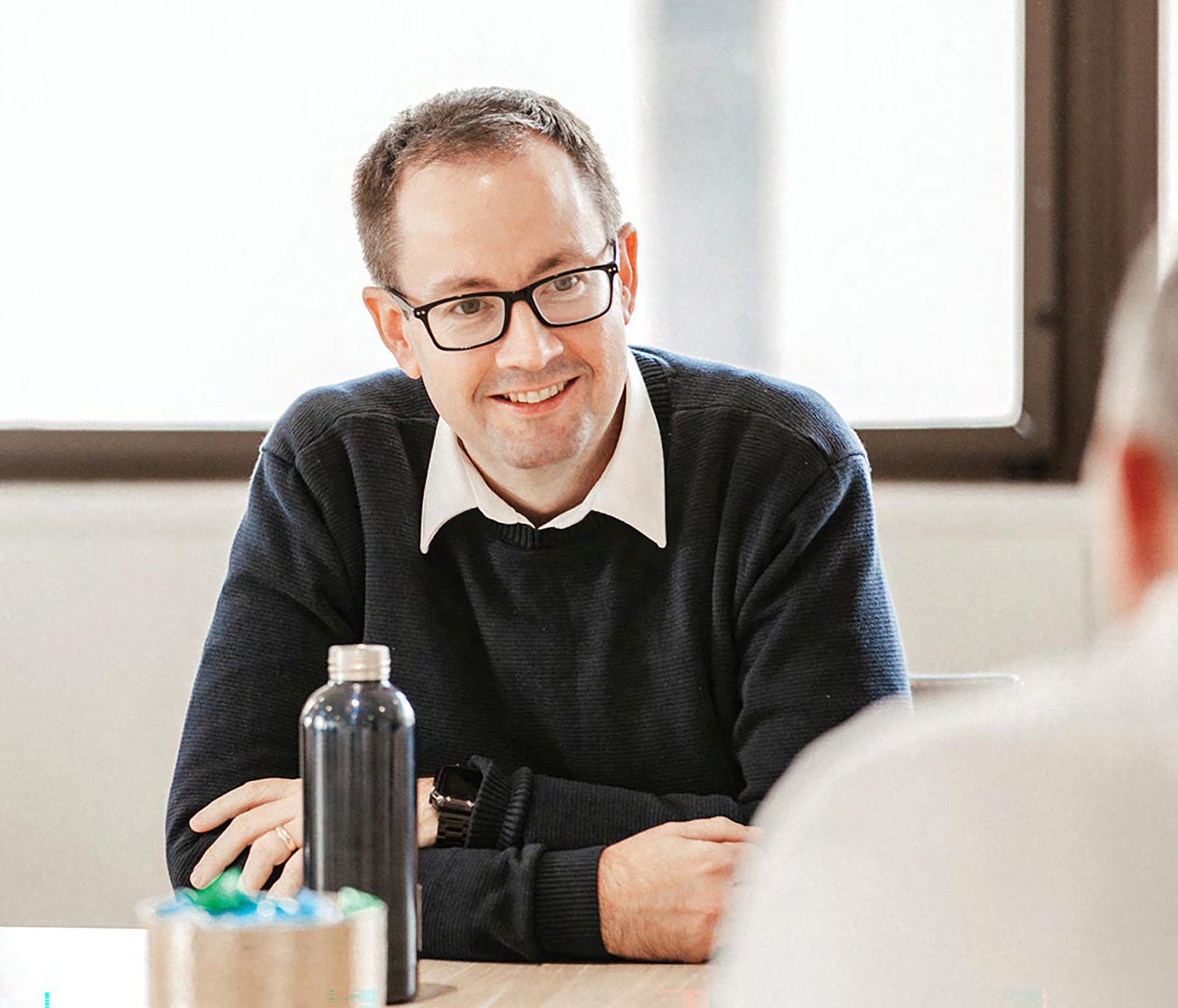
Our company culture is built on our four CARE values: Collaborative, Aspiring, Relationship-driven and Enterprising. These values, combined with the mindset and behaviours our people bring to work, create an environment where careers flourish and client relationships thrive.
Our culture encourages and rewards open and honest conversations. Our partners champion this through creating a psychologically safe environment where people feel respected and that they can contribute new ideas and challenge the status quo.
This commitment to transparency, safety and trust is reflected in the way we continually review and refine our people practices. Through ongoing listening and feedback mechanisms—such as regular pulse checks, focus groups, and anonymous suggestion channels—we ensure that every voice can be heard and that insights lead to real action. Our leaders are not only accessible but actively engaged in fostering an environment that encourages innovation and continuous improvement.
Our engagement surveys consistently show that our people feel this sense of safety and trust.
We understand that high quality service delivery starts with hiring the right people. Our approach to recruitment is comprehensive and generally includes multiple interviews and psychometric testing at all role levels.
Performance excellence is embedded in our systematic approach to developing and managing talent. Our comprehensive competency framework defines clear expectations and career pathways from graduate to partner level, supported by regular performance reviews and transparent promotion criteria.
Our 2025 engagement survey results demonstrate the strength of our people-centred approach and validate our investments in culture and development:
With an Employee Net Promoter Score of +54, our people are genuine advocates for William Buck, as both an employer and service provider. This exceptional result reflects the alignment between our values and the daily experience of our team members across all locations, with 61% of respondents rating themselves as active promoters.
Our 86% engagement score is well above industry benchmarks, representing consistent improvement from our already strong baseline. This sustained high performance across key measures—engagement, wellbeing and progress—demonstrates the maturity and effectiveness of our cultural foundation.
The survey reinforces that our CARE values are genuinely lived. 95% of our people believe William Buck is ethical, while 93% have strong confidence in our values and purpose. This alignment creates the psychological safety and trust necessary for both individual growth and exceptional client service.
Our approach to employee engagement includes regular feedback mechanisms that drive meaningful change, including:
Annual Group-wide engagement surveys: comprehensive assessment with 94% response rate across 1,200+ employees
Onboarding and offboarding surveys: understanding the complete employee lifecycle experience
Continuous pulse monitoring: early identification of engagement trends and opportunities
A strong culture paired with professional competency equips our people to both perform excellent work and inspire excellence in others—a critical component of audit quality and client service. We demonstrate our commitment to diversity and inclusion through:
NAIDOC week: celebrating indigenous Australian culture and contributions across our offices
DiSC culture reports: understanding behavioural diversity within teams to enhance collaboration
Flexible work arrangements: supporting diverse needs and life circumstances
Recognition programs: celebrating achievements and contributions at all levels
The William Buck Foundation: our registered charity coordinates community giving, pro bono work and volunteer initiatives
Our culture of CARE isn’t just about policies and programs—it’s about the genuine relationships, open conversations and shared commitment to excellence that defines the William Buck experience for our people and our clients.
CCollaborative
We are one firm, working together to achieve amazing things.
AAspiring
R Relationship-driven
E Enterprising
We challenge ourselves to achieve our goals by unlocking the potential in everyone. We put people first in everything we do, prioritising relationships and delivering exceptional client results. We unearth possibilities and provide value through our innovative approach.
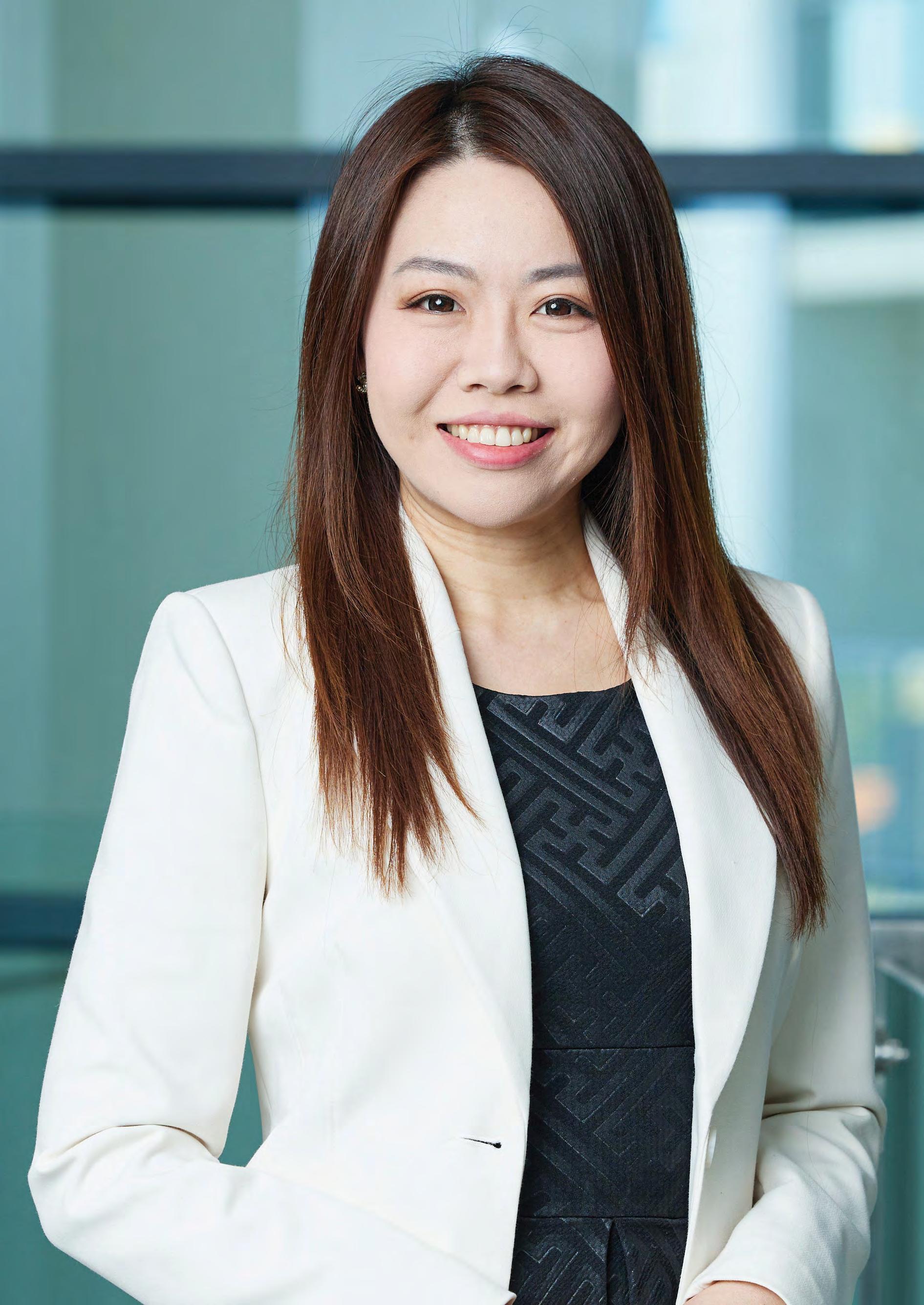
We believe learning and development is fundamental to supporting our people’s career aspirations while building the capabilities needed to deliver exceptional client outcomes.
Learning
We invest in learning and development to help our people grow beyond meeting professional requirements. We create pathways for genuine career progression, build technical skills and develop leadership qualities that drive our business forward. This commitment directly translates to better outcomes for our clients, who benefit from our people’s continuously evolving expertise.
Our approach includes:
In-person conferences: Group-wide conferences bring everyone together to learn, network and stay ahead of industry developments. We run targeted programs for every level, from graduates building foundational knowledge to partners developing strategic leadership capabilities.
Role-specific workshops: Tailored workshops address the unique challenges our people face in their day-to-day work. These targeted sessions support the practical skills they need to succeed in their current role while preparing for their next career step.
Mentoring and coaching: We connect our people with experienced leaders across the Group. These relationships provide personal guidance that accelerates professional development and builds the connections needed for long-term career success.
Blended learning programs: We combine online and face-to-face learning to maximise effectiveness, allowing people to absorb knowledge at their own pace and apply it immediately in practical, supervised settings.
Self-directed online learning: Our people have access to extensive digital resources to help them develop new skills or deepen existing expertise. This flexibility allows them to learn at their own pace, whenever and however works best for them.
Professional qualifications and accreditations: We help our people achieve and maintain certifications that advance their careers and enhance their professional standing, providing them with both financial support and study leave arrangements.
Regulatory compliance: Working to achieve the best outcomes for our clients requires more than technical competence. We deliver comprehensive risk and compliance training so that everyone understands their legal and ethical obligations, protecting both our people and our clients.
Our learning and development programs create genuine opportunities for career progression within William Buck. People join us knowing they’ll be supported to grow, to take on new challenges and to build careers that are both professionally rewarding and personally fulfilling. This investment in our people helps us to attract and retain talent that drives our success.

Grad College played a key role in starting my role as an Auditor. It provided me with a foundation in audit principles while also improving my interpersonal skills through various activities and workshops. I was able to collaborate and connect with peers from across the Group which broadened my perspective and prepared me for real-world audit work.
— Alice Seo, William Buck Graduate

I truly appreciated how Grad College integrated hands-on audit training with essential soft skills development–it gave me both the knowledge and confidence to step into my role as an Auditor with purpose.
— Vanessa Sutiono, William Buck Graduate

Grad College was a valuable experience that helped me build both technical and non-technical skills. It provided a strong platform to expand upon in the audit field, while also giving me the chance to develop my communication and critical thinking abilities. Being part of a collaborative and engaging group made learning enjoyable and helped improve both my personal and professional capabilities.
— William Bryce, William Buck Graduate
Our professional development program centres on both technical and professional skills and is aligned with the Group’s capability framework.
Professional, client service and leadership training to our partners and employees to support their growth and development as professionals.
Keeping partners and employees up to date with developments in applicable legal and regulatory requirements, relevant ethical requirements as well as the accounting and auditing standards.
On-the-job coaching to support the practical application of learning and to develop professional expertise.
The development of William Buck audit employees is guided by an Audit Learning Committee, with representatives from each firm across the Group and Group Risk. In addition to the Group-wide development opportunities that address ethical, compliance and independence obligations, audit professionals embark on a comprehensive training regime at every career stage and level. Development opportunities are clearly defined in our role-specific Audit Learning Pathway, which outlines the opportunities to enhance skills at each level in an auditor’s career.
The curriculum under this program includes:
William Buck’s audit methodology under a staged approach over several years, dependent on experience
Professional ethics and independence
William Buck’s audit documentation platform
Accounting standards update
Professional, client service and leadership development
Our audit learning journey consists of:
A Graduate Program focusing on professional skills and audit technical skill development
An Intermediates Blended Learning Program focusing on technical content delivered online and virtually
A Senior Auditors Program building upon technical and client service capability as careers progress
Face-to-face training for partners, principals and managers focusing on technical financial reporting and audit topics. These are informed by new requirements and internal and external monitoring findings. This targeted training ensures that leadership-level professionals are equipped to address emerging risks, reinforce audit quality and drive continuous improvement across the Group Audit employees also receive training as required based on specific needs or because of legal or regulatory change. We also provide opportunities for partners and employees to attend professional development and training through external providers. Our people are required to meet all the professional development requirements of their professional bodies.

The description of the system of quality management for the year ended 30 June 2025, included in this report, explains how William Buck complies with relevant ethical, professional, regulatory and legal requirements.
The WBL Board monitors the effectiveness of the system of quality management based on information provided to it, including the findings from monitoring reviews. These programs provide evidence of our compliance with the application of William Buck’s methodologies, policies and procedures as well as identifying areas for continuous quality improvement. The results of the monitoring programs provide the WBL Board with a reasonable basis to conclude that, overall, our system of quality management is operating effectively.
Given William Buck’s commitment to continuous quality improvement, the system of quality management allows us to identify areas that can be focused on for improvement.

Greg Travers Chair William Buck Group



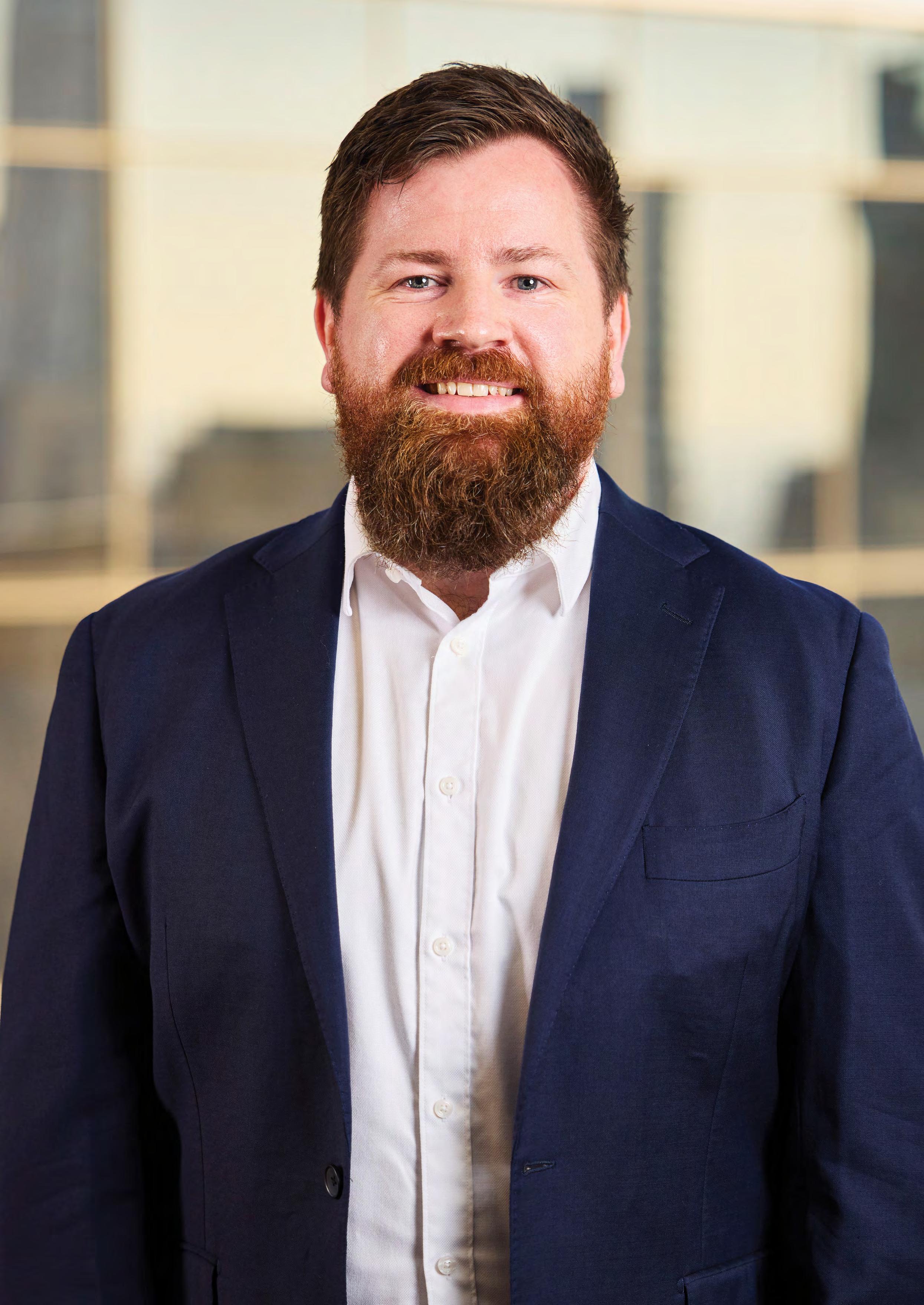
The contents of Part B of the William Buck Transparency Report are in accordance with the firm-specific elements of Part 2 of Schedule 7A of the Corporations Amendment Regulation 2012 (No.5).
At 30 June 2025, William Buck Audit (VIC) Pty Ltd and William Buck Audit (WA) Pty Ltd are the only William Buck member firms that need to lodge a Transparency Report under the criteria of s332A(1) of the Corporations Act 2001. Information on the audit-specific elements for other member firms will be provided when the s332A(1) criteria are met.
William Buck Audit (VIC) Pty Ltd and William Buck Audit (WA) Pty Ltd are Authorised Audit Companies as defined under Division 1 of Part 9.2A of the Corporations Act 2001.
Contents of Part B of the 2025 Transparency Report are to be read in conjunction with Part A. Together the full report addresses all elements of Part 2 of Schedule 7A of the Corporations Regulations 2001.

The partner remuneration model for William Buck Audit (VIC) Pty Ltd and William Buck Audit (WA) Pty Ltd rewards partners on the basis of quality performance, responsibility, experience and respective contributions.
The performance and contribution of each partner is assessed on an ongoing and annual basis, and they receive a level of remuneration in accordance with their performance and contribution.
The key components of the criteria which partners are assessed upon are:
Leadership
Technical competency
Ethical conduct
Development and care of professional and administrative staff
Client service
Practice management
Business development*
Commitment to continuing professional education
Commitment to quality assurance
Building brand and firm value, and
Community commitment
* William Buck Audit (VIC) Pty Ltd and William Buck Audit (WA) Pty Ltd partners are not incentivised or remunerated in any form for cross-selling of non-assurance services to audit clients.
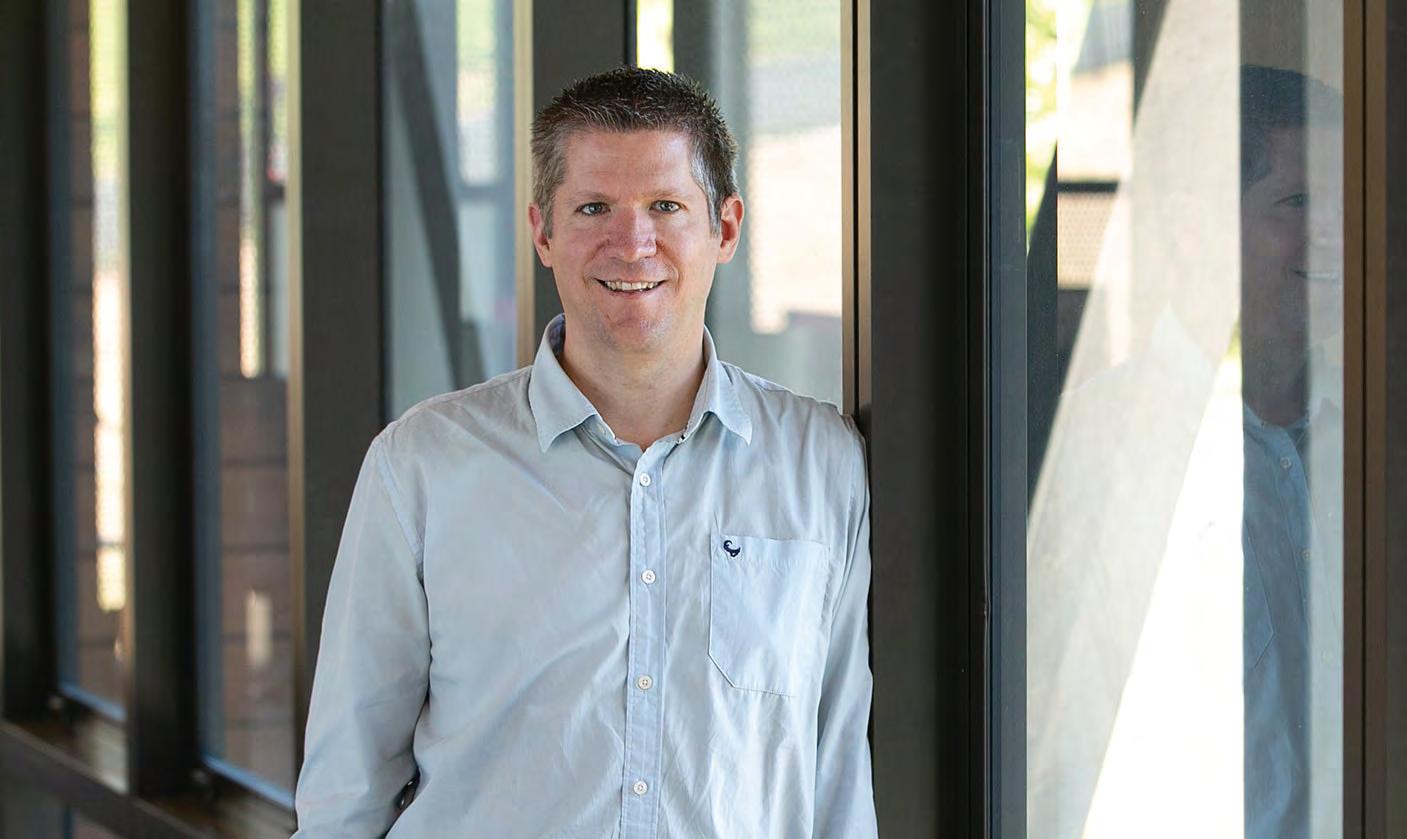
Fees
$3,713,171
$437,263 Total
$4,150,434
$11,517,738
$727,398
$23,480
$750,878
$3,664,293
The following William Buck Audit (VIC) Pty Ltd audits meet the criteria of s332A(1) of the Corporations Act 2001:
A2A GN Ltd
Altair Minerals Limited
Alvo Minerals Limited
Anagenics Limited
Aureka Limited
Auric Mining Limited
Beam Communications Holdings Limited
Cann Group Limited*
ChemX Materials Limited
Connexion Mobility Ltd
Copper Strike Limited
De.mem Limited
ECS Botanics Group Ltd
Entertainment Rewards Ltd
Environmental Clean Technologies
Limited
Evergreen Lithium Limited
Flynn Gold Limited
FOS Capital Limited
Heavy Rare Earths Limited
Hexima Limited
HitIQ Limited
*No longer a client
Iltani Resources Limited
Invion Limited
IPB Petroleum Limited
Iris Metals Limited
Island Pharmaceuticals Limited
James Bay Minerals Limited
Keybridge Capital Limited
Knosys Limited
Lakes Blue Energy NL
Leeuwin Metals Ltd
Lumos Diagnostics Holdings Limited
MRG Metals Limited
MyEco Group Ltd
Novatti Group Limited
Noxopharm Limited
Nyrada Inc.
Optiscan Imaging Limited
Opyl Limited
Peako Limited
Percheron Therapeutics Limited
Perpetual Resources Limited
Powerhouse Ventures Ltd
Prescient Therapeutics Limited
QuickFee Limited
ReNerve Limited
Rhythm Biosciences Limited
Ronin Resources Ltd
SenterpriSYS Limited*
Sequoia Financial Group Ltd
Southern Cross Gold Ltd*
Spenda Limited
Stellar Resources Limited
Sun Silver Limited
Syntara Limited
Taiton Resources Limited
Tryptamine Therapeutics Limited*
Unico Silver Limited
Vertex Minerals Limited
Victor Group Holdings Limited*
VIP Gloves Ltd*
Vitasora Health Limited
Wellnex Life Limited
West Wits Mining Limited
Wingara AG Ltd
The following William Buck Audit (WA) Pty Ltd audits meet the criteria of s332A(1) of the Corporations Act 2001:
Apollo Minerals Limited
Basin Energy Limited
Beacon Minerals Limited*
Brazilian Critical Minerals Limited
Constellation Resources Limited
Eagle Mountain Mining Limited
Grand Gulf Energy Limited
LTR Pharma Ltd
M3 Mining Limited
Merino & Co. Limited
NGX Limited
Odyssey Gold Ltd
Peregrine Gold Ltd
Province Resources Ltd
Solstice Minerals Limited
Terra Metals Limited
Triton Minerals Ltd
Westar Resources Limited
*No longer a client
William Buck Audit (VIC) Pty Ltd and William Buck Audit (WA) Pty Ltd were subject to the following regulator and professional body reviews during the period:

New South Wales
Sydney Level 29
66 Goulburn Street
Sydney NSW 2000
Parramatta
Level 7
3 Horwood Place
Parramatta NSW 2150
PO Box 19
Parramatta NSW 2124
T (61 2) 8263 4000 nsw.info@williambuck.com
Australian Capital Territory
Canberra
Level 4
23 National Circuit
Barton ACT 2600
T (61 2) 6126 8500 act.info@williambuck.com
Victoria
Melbourne Level 20
181 William Street
Melbourne VIC 3000
T (61 3) 9824 8555 vic.info@williambuck.com
Queensland
Brisbane Level 22
307 Queen Street
Brisbane QLD 4000
Gold Coast
Wyndham Corporate Court Centre Suite 8A
Level 8/1 Corporate Court
Bundall QLD 4217
GPO Box 563
Brisbane QLD 4001
T (61 7) 3229 5100 qld.info@williambuck.com
Western Australia
Perth Level 3
15 Labouchere Road
South Perth WA 6151
PO Box 748
South Perth WA 6951
T (61 8) 6436 2888 wa.info@williambuck.com
South Australia
Adelaide Level 6
211 Victoria Square
Adelaide SA 5000
GPO Box 11050
Adelaide SA 5001
T (61 8) 8409 4333 sa.info@williambuck.com
New Zealand
Auckland Level 4
21 Queen Street
Auckland 1010 New Zealand
Tauranga
The Kollective
145 Seventeenth Ave 3112 New Zealand
T (64 9) 366 5000 info@williambuck.co.nz
